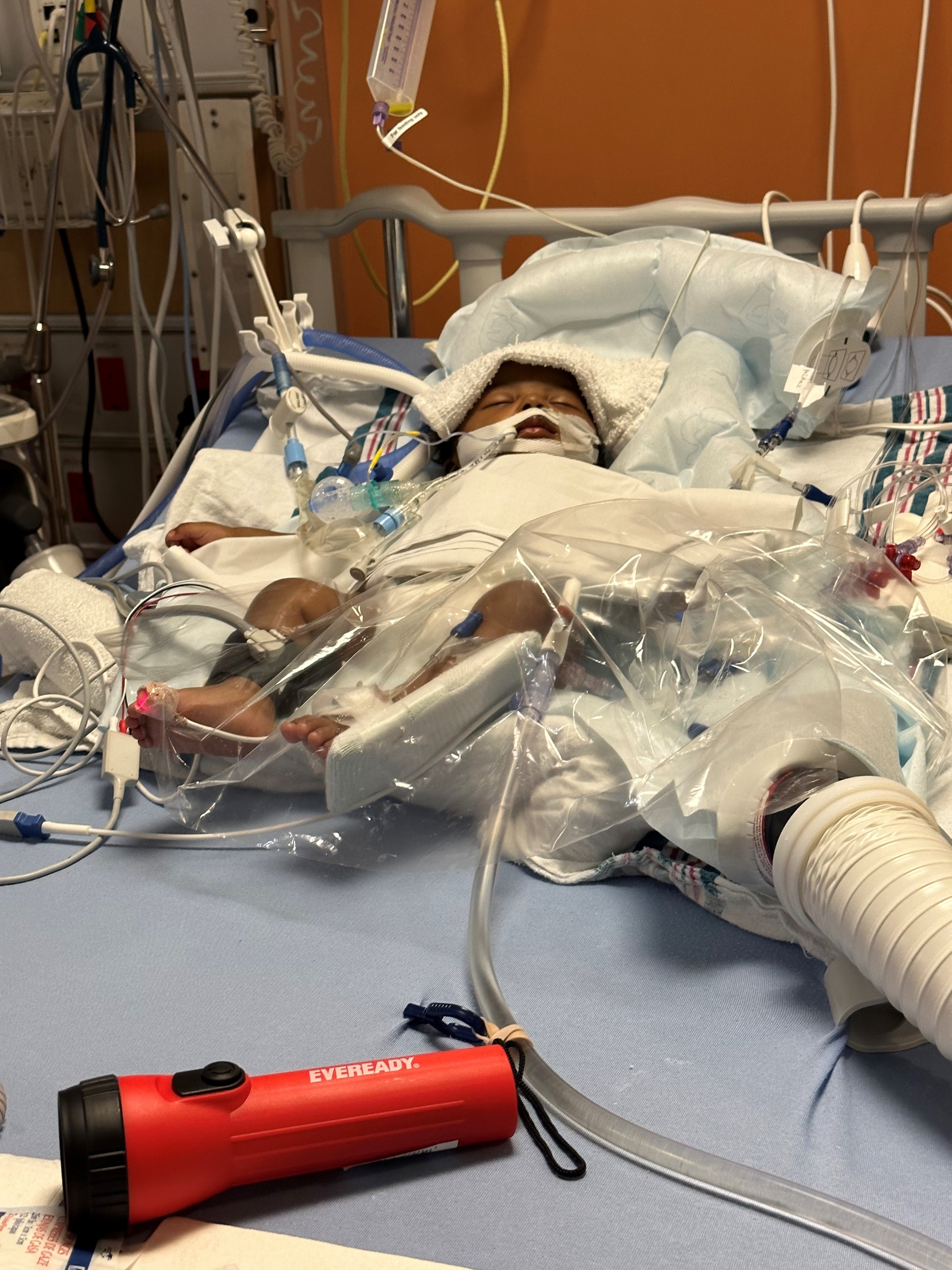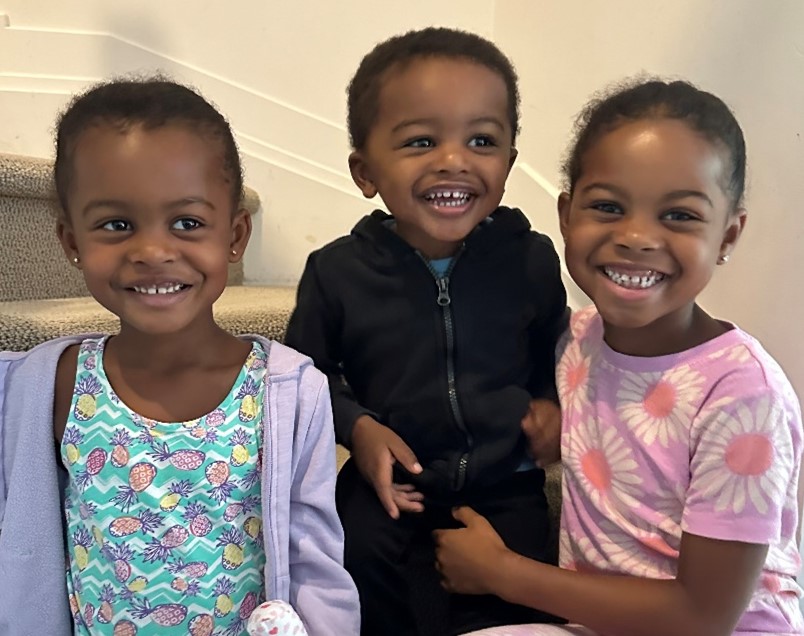Yemi's Story
Respiratory Syncytial Virus
Respiratory Syncytial Virus (RSV) is a highly contagious virus that infects the respiratory tract. While it often presents with symptoms similar to the flu, its implications can be severe, especially for infants.
Yemi’s story below provides a glimpse into one family’s grim experience with this virus. The availability of new protective products and improved data collection/surveillance, however, represent marked progress toward the goal of ensuring all infants in Ontario receive the protection they need.
Yemi’s Story
“I Love Watching Him Live”
For Mila Olumogba, something as ordinary as watching her 22-month-old son, Adeyemi (Yemi), fill a bucket with sand at the beach fills her with gratitude – “I just love watching him live”. Life takes on new meaning when you’ve seen it slipping away. Yemi was only 10 weeks old when he contracted Respiratory Syncytial Virus (RSV) and almost died.
“You’re Going to Be Here a While..."
In December 2022, Mila and her daughters were sick with RSV. Mila, tired and feverish, remembers it as one of the worst illnesses she’d ever had. Her husband and Yemi, who was born with a heart defect, initially seemed unaffected. But when Yemi developed a cough and struggled to breastfeed, Mila took him to CHEO, where he was tested for flu, COVID, and RSV. He was sent home with Tamiflu, an antiviral, but his symptoms worsened. Several days later, Mila returned to CHEO, where Yemi was diagnosed with RSV and put on high-flow oxygen. A pediatrician warned, "You’re going to be here a while," but Mila thought it might be just a few days.
Yemi’s condition deteriorated, and he was moved to the NICU. His case is not unique—49% of infants under six months hospitalized with RSV end up in intensive care. RSV-associated hospitalizations are highest in the first 3 to 6 months of life. Like Yemi, infants with risk factors such as heart conditions are particularly vulnerable. However, 80% of children hospitalized with RSV have no underlying risk factors at all.
“Strap In”

Doctors warned Mila and her husband to brace for a rough journey. “The docs basically said, ‘Strap in’. They said things were going to be tough for the next while - RSV gets worse before it gets better.” Days later, Mila was home making dinner for her two daughters when she got a call: Yemi was struggling to breathe and needed immediate intubation. Rushing to the hospital, she was relieved to know the procedure went well, but seeing Yemi on a ventilator was devastating. She and her husband sobbed seeing their tiny 10-week-old hooked up to a ventilator.
Later, while grabbing food in the hospital cafeteria, Mila heard an announcement she’ll never forget: “Code Blue - all staff to ICU Room 9.” Yemi was in cardiac arrest. Mila and her husband were ushered into a room where they waited in agonizing silence “We just sat there waiting for someone to come in and tell us if our son was alive or dead”. Finally, the doctors delivered the news they’d hoped for - Yemi had been resuscitated.
"The Beginning of Hell"
The adversity didn’t end with Yemi’s cardiac arrest. In fact, Mila says it was the beginning of hell for the next month. Yemi spent 19 days at CHEO, including 12 days on a ventilator. After discharge, he faced weeks of painful opioid withdrawal, leaving Mila managing an intense medication schedule. "He wasn’t eating, he was angry, he was always crying," she recalls. She remembers the intense pressure and anxiety of administering medication correctly and using spreadsheets and alarms on her phone to tell her which drug to give and when.

Gratitude in Action
Today, Yemi is a healthy, energetic toddler. Mila’s gratitude to the CHEO team goes beyond words – she organizes annual fundraisers for CHEO and donates proceeds from her business - Colour Me Christmas – to pediatric hospitals. She’s also written a book - Dr. Santa & The Miracle Makers – about a little boy who ends up in the hospital over Christmas. Along with a host of holiday characters, the book profiles NICU healthcare providers and highlights their dedication and compassion.
To protect all infants, especially those at high risk like Yemi, collaboration is essential. Health-care providers, parents, caregivers, researchers, and communities must work together—from sharing information and administering doses to gathering and reporting data. It takes a village not only to raise a child but to protect one as well.
Contact Us
BORN Ontario
401 Smyth Rd
Ottawa, ON K1H 8L1
Help Desk
BIS · CARTR Plus · MIS · NTQA
FAQ · Email Us
1-855-881-BORN (2676)
Sign up for our Newsletter
Stay up-to-date on BORN Ontario news by subscribing to our newsletter.
Frequently Asked Questions
Help Desk
BIS · CARTR Plus · MIS · NTQA
Need help? We're here for you.
Check our FAQ · Email us
Call toll-free: 1-855-881-BORN (2676)




